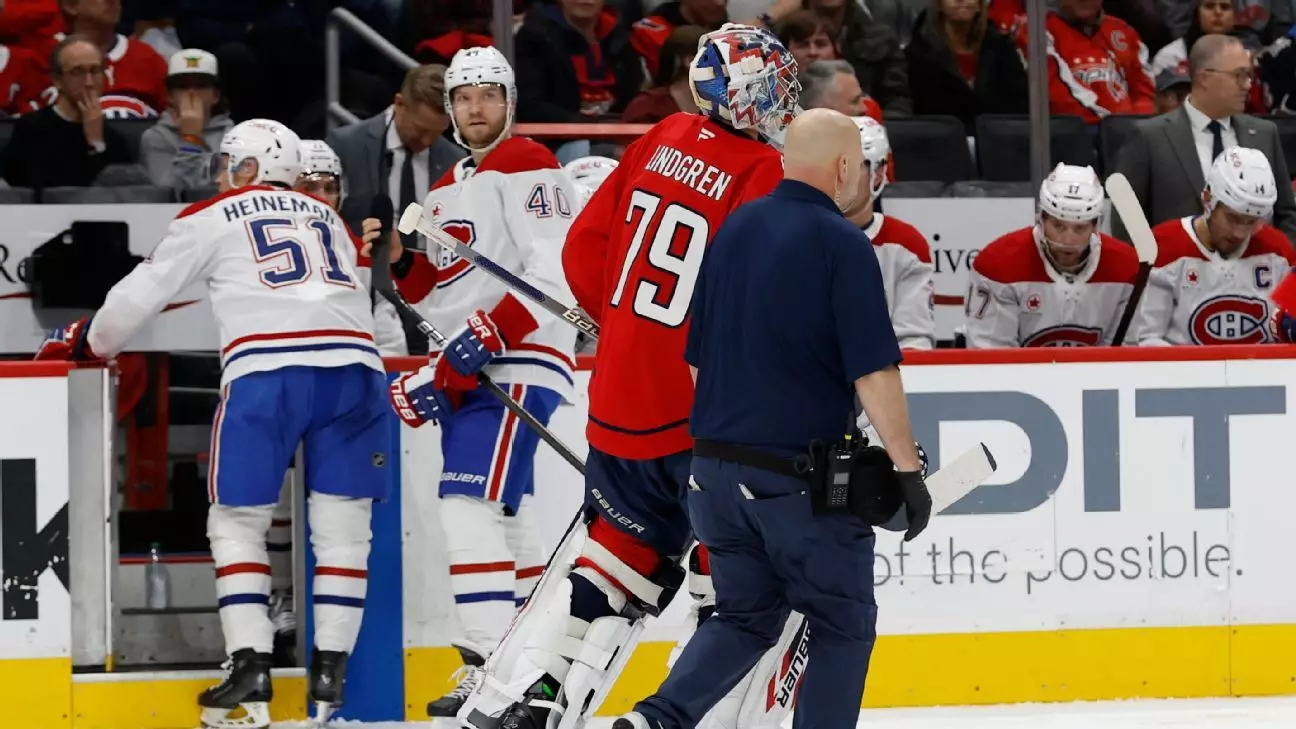The Washington Capitals are currently facing a critical juncture in their season, highlighted by the injury of their goalie Charlie Lindgren. The incident occurred during a tense match against the Montreal Canadiens, where Lindgren had to leave the game following a collision in the crease—an unfortunate yet common risk in hockey. This incident occurred just minutes into the second period, as Lindgren was struck in the head by Nick Suzuki, who was inadvertently pushed into the goalie by Brandon Duhaime. This type of injury has the potential to derail a player’s season and create a ripple effect throughout the team.
Before his premature exit, Lindgren displayed commendable performance, successfully stopping all nine shots he faced and keeping the Capitals in a 1-0 lead. However, the silver lining quickly dimmed as the Canadiens mounted a comeback, winning the game 3-2 in overtime. Lindgren’s statistics reflect a solid season thus far, with a record of 10-8-2, a goals-against average (GAA) of 2.65, and a save percentage of 0.901. Nonetheless, the injury has placed him on injured reserve, meaning he’ll be sidelined for at least a week—a crucial time period for both player and team.
In the wake of Lindgren’s injury, the Capitals have recalled Hunter Shepard from the AHL’s Hershey Bears to fill the void. At 29 years old, Shepard boasts an impressive record of 15-7-1 this season in the AHL, featuring a GAA of 2.68 and a save percentage of 0.898, along with a shutout. This promotion positions him for a potential first NHL start against the Nashville Predators, a significant moment in any young player’s career. Shepard’s accolades as the 2023 AHL MVP and 2024 AHL Goaltender of the Year highlight his readiness to take a step up to the big leagues. However, the transition from AHL to NHL isn’t always seamless, and the pressure will certainly be on Shepard to perform.
Strategic Considerations Moving Forward
With Lindgren sidelined until at least January 18, when he may be eligible to return against the Pittsburgh Penguins, the Capitals need to tread carefully regarding their strategy. The team must maintain balance, rallying around their new goaltender while ensuring their defense is robust enough to support him. The potential for inconsistent performance is always a factor when introducing new players to the lineup, especially in high-stakes games.
A key aspect of the Capitals’ future success will hinge on how both the management and players respond to this adversity. As they navigate through this injury crisis, they must emphasize teamwork and resilience. The success of the coming weeks, primarily determined by the performance of Shepard and the adjustments to the team dynamics, could ultimately shape the Capitals’ trajectory for the rest of the season.


Leave a Reply